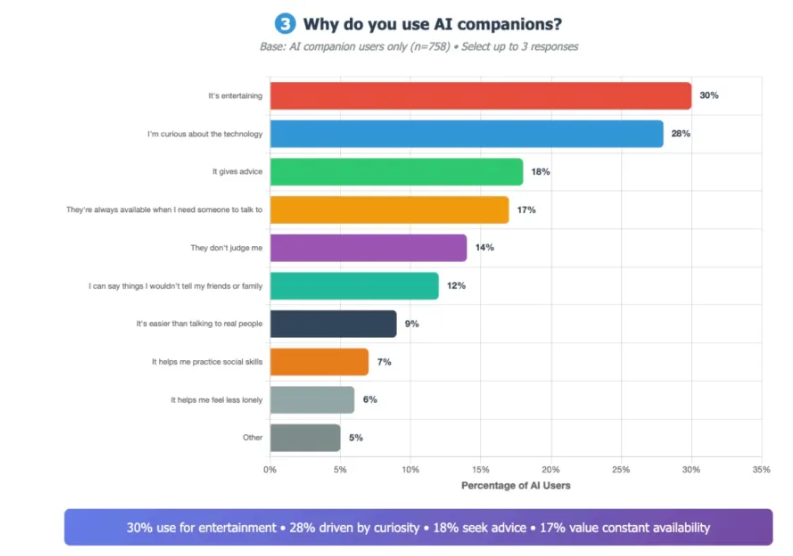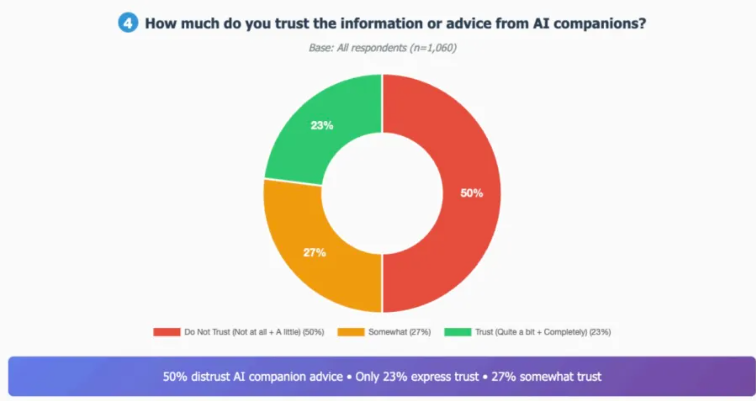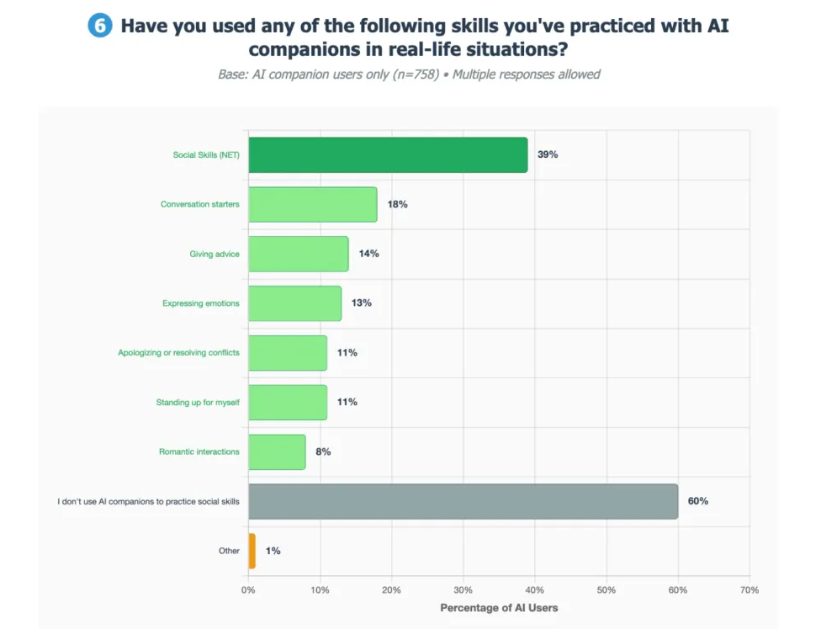A new study conducted by the U.S. nonprofit organization "Common Sense Media" reveals that 72% of American teenagers (aged 13 to 17) have tried an AI chatbot at least once. The study specifically focuses on AI chatbots designed for more private conversations, rather than AI tools like Homework Helper or voice assistants that simply answer questions.
The AI chatbots mentioned in the study include digital AI characters provided by companies such as Character.AI and Replika, as well as general chatbots like ChatGPT or Claude, which allow users to engage in more personalized interactions. The survey found that these AI chatbots are highly appealing to teenagers, with 52% of them reporting that they regularly use these AI tools, with 13% interacting with AI every day and 21% several times a week.

In terms of usage, boys (31%) were more likely than girls (25%) to say they had never tried an AI chatbot. The study sample included 1,060 teenagers, and the research was conducted by the NORC team from the University of Chicago in April to May 2025. Despite concerns about the impact of AI on teenagers' mental health, such as Character.AI facing legal action over a teenager's suicide, the study also revealed early trends in young people using AI for simulated interpersonal interactions.
The survey showed that teenagers have diverse motivations for using AI chatbots. 46% of respondents viewed AI chatbots as tools or programs, while 33% used them for social interaction and relationship building. Teenagers mainly used these AI chatbots for entertainment (30%), curiosity about AI technology (28%), seeking advice (18%), and because they were always available (17%). Although half (50%) of teenagers expressed distrust in information provided by AI, older teenagers tended to trust AI less.

Interestingly, one-third of teenagers said their conversations with AI were more satisfying than those with real friends, yet most (67%) held the opposite view. Additionally, 39% of teenagers used AI chatbots to practice real-life interactions, and many improved their social skills with the help of AI.

Notably, the majority of teenagers (80%) said they spent more time with real friends than with AI chatbots, with only 6% stating the opposite.
